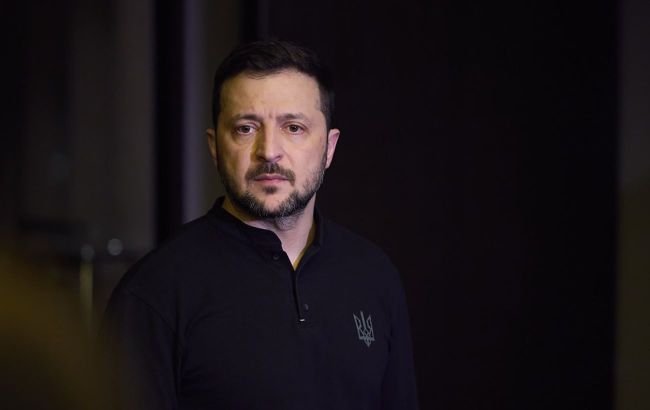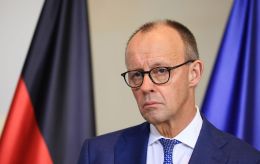Zelenskyy tells Dutch parliament what can stop the war with Russia
 President Volodymyr Zelenskyy (president.gov.ua)
President Volodymyr Zelenskyy (president.gov.ua)
The international community must take decisive action to ensure that Russia ends the war it started in Ukraine, Ukrainian President Volodymyr Zelenskyy said during his address to the Dutch parliament.
In Zelenskyy's view, an effective strategy must be built on two key pillars: the maximum isolation of Russia and sustained defense support for Ukraine.
During his address, Zelenskyy emphasized that the first step toward ending the war is the complete political and economic isolation of Russia. This includes not only the current restrictions but also what he called "painful sanctions," particularly targeting Russian oil.
The president emphasized the need for the 18th sanctions package, calling for real and painful measures specifically targeting Russian oil.
According to him, any cooperation scheme that allows the Kremlin to maintain economic stability and continue its war must be brought to an end. Zelenskyy also mentioned ongoing discussions around implementing a price cap on Russian oil. In his view, only a cap set at $30 per barrel would be truly painful and significantly limit Moscow's ability to finance its aggression.
The president also called for a blockade of Russia's tanker fleet and a complete disconnection of Russia from the global banking system.
Zelenskyy said the second key priority is ensuring long-term defense support for Ukraine. He stressed that the West must demonstrate determination and consistency in its assistance, so that Russia understands Ukraine will not be left alone in the face of aggression.
The president emphasized that Russia must understand Ukraine will not be left alone and that Europe will remain steadfast.
Zelenskyy concluded that only through strict isolation of the Kremlin and consistent support for Kyiv can the current war be brought to an end — and future acts of aggression by Russia against Europe and the Alliance be prevented.
18th sanctions package
In early June, the European Commission introduced its 18th package of sanctions against Russia in response to its ongoing aggression toward Ukraine. The new measures are aimed at reducing Moscow's revenue from energy exports, as well as targeting Russian banks and the defense sector.
However, Slovak Prime Minister Robert Fico stated that his country would not support the new sanctions unless the European Commission provides a solution to avoid economic harm to Slovakia in the event of a gradual EU phase-out of Russian energy.
Meanwhile, Hungarian Prime Minister Viktor Orbán called for the removal of the proposed ban on Russian energy imports, citing price surge risks following US airstrikes on Iran.

